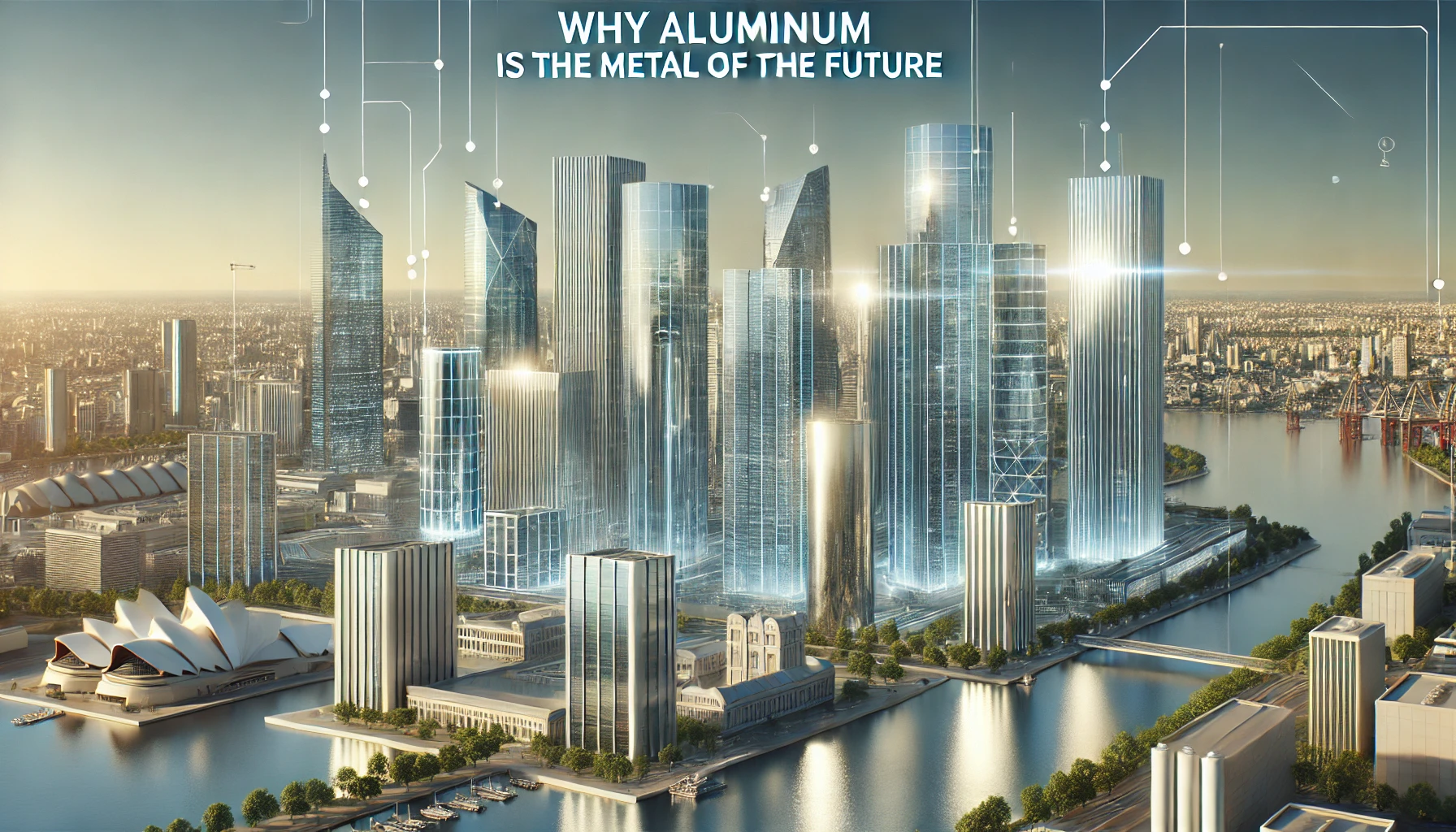
In a world racing towards greener alternatives and environmentally responsible solutions, one material has quietly taken the lead: aluminium. Once seen simply as a lightweight and versatile metal, aluminium is now being recognized as a sustainable powerhouse across industries. From construction and transportation to packaging and electronics, aluminium is transforming how we think about long-term ecological impact.
At Beyond Lineals, sustainability isn’t just a buzzword—it’s a principle we design and manufacture by. In this blog, we’ll explore why aluminium is considered the metal of the future, how it supports sustainability goals, and what makes it a top choice for eco-conscious manufacturers and consumers alike.
Read More: https://beyondlineals.com
🌍 The Growing Demand for Sustainable Materials
Before diving into aluminium’s advantages, it’s important to understand why sustainability matters now more than ever.
As climate change accelerates and natural resources dwindle, industries across the globe are under pressure to reduce their carbon footprint, lower emissions, and move toward circular economy models. Whether it’s a government regulation, a green building code, or a consumer choosing eco-friendly packaging, the demand for sustainable materials has surged.
Aluminium answers that call—beautifully and efficiently.
🪙 What Makes Aluminium Sustainable?
So, what exactly makes aluminium a sustainable material? The answer lies in a unique combination of properties:
1. ♻️ Infinitely Recyclable
Unlike many materials that degrade after recycling, aluminium can be recycled endlessly without losing its quality. In fact, nearly 75% of all aluminium ever produced is still in use today. This makes it a champion of circularity.
Even more impressive, recycled aluminium requires 95% less energy than producing it from raw bauxite ore. That means massive reductions in greenhouse gas emissions.
Transition Word: In other words, aluminium recycling isn’t just good for the planet—it’s essential for a sustainable future.
2. ⚡ Energy Efficiency
Aluminium is one of the most energy-efficient materials to work with over its lifecycle. Its lightweight nature makes it ideal for transportation applications—helping reduce fuel consumption in cars, trucks, trains, and even aircraft.
For example, replacing heavier materials with aluminium in vehicles can reduce fuel use by up to 20%, leading to fewer emissions and lower environmental impact over time.
Transition Word: Moreover, the energy savings continue long after production—aluminium’s performance benefits extend through years of efficient use.
3. 🧱 Durability and Longevity
Another sustainable trait of aluminium is its incredible lifespan. It’s corrosion-resistant, strong, and weatherproof. Products made from aluminium—be it a building facade or a solar panel frame—last for decades, reducing the need for frequent replacements or repairs.
Transition Word: As a result, fewer resources are consumed over the product’s life, making it an environmentally smart investment.
4. 🌱 Low Maintenance and Reduced Waste
Because aluminium doesn’t rust and requires minimal upkeep, it saves water, energy, and chemicals over time. Add to that its easy machinability and exact production capabilities, and it becomes clear how precision aluminium components help minimize waste in the manufacturing process.
At Beyond Lineals, our streamlined extrusion and machining processes are designed to maximize efficiency and reduce scrap—supporting a cleaner, more sustainable workflow.
🏭 How Aluminium Supports Green Manufacturing
At the heart of any sustainable material is the system that processes it. At Beyond Lineals, we are committed to making aluminium manufacturing as green as possible through:
- Sourcing recycled aluminium billets for many of our extrusion needs
- Optimizing production techniques to reduce energy consumption
- Investing in clean, closed-loop systems for water and coolant recycling
- Implementing zero-waste targets across our machining operations
Transition Word: In essence, sustainability in aluminium doesn’t stop at the material—it includes the entire manufacturing lifecycle.
🏗️ Industries Leading the Aluminium Sustainability Movement
Here’s how aluminium is reshaping sustainability across sectors:
🚗 Automotive & Transportation
EVs and next-gen vehicles rely heavily on aluminium for weight reduction, which directly boosts energy efficiency. With global emissions targets tightening, aluminium has become a preferred material for building lighter, safer, and cleaner transport systems.
🏢 Architecture & Construction
Green buildings demand materials that are durable, recyclable, and energy-efficient. Aluminium doors, windows, curtain walls, and facade systems not only look sleek but also improve energy performance and reduce overall building footprint.
📦 Packaging
Aluminium cans and foils are among the most recyclable packaging options on the planet. Unlike plastic, aluminium recycling is well-established and economically viable, making it the go-to for sustainable packaging.
⚡ Renewable Energy
Aluminium is used extensively in solar panel frames, wind turbines, and power infrastructure. Its resistance to corrosion and ease of transport make it ideal for building the backbone of the clean energy transition.
Transition Word: Clearly, aluminium is more than just a material—it’s a sustainable solution across modern industries.
📈 The Future: Innovation Meets Responsibility
As technology evolves, so too does aluminium. Researchers and engineers are constantly developing new alloys, smarter manufacturing techniques, and more efficient recycling systems to make aluminium even greener.
At Beyond Lineals, we’re proud to be part of this movement. We’re currently exploring:
- Nano-coatings that enhance durability while reducing environmental impact
- Hydro-powered extrusion lines to lower energy use
- Collaborations with circular economy partners for closed-loop supply chains
Transition Word: With every innovation, aluminium proves it’s not just the metal of today—but of tomorrow.
💬 Conclusion: The Sustainable Choice Is Clear
In an era where sustainability is no longer optional, aluminium stands tall as the material of the future. It’s lightweight, recyclable, durable, and energy-saving—making it the perfect partner for industries aiming to meet both performance goals and environmental commitments.
At Beyond Lineals, we believe that sustainability isn’t a feature—it’s a foundation. From sourcing to shaping, we treat aluminium not just as a resource, but as a responsibility.
So if you’re looking to build something strong, smart, and sustainable—look no further than aluminium.



Add comment